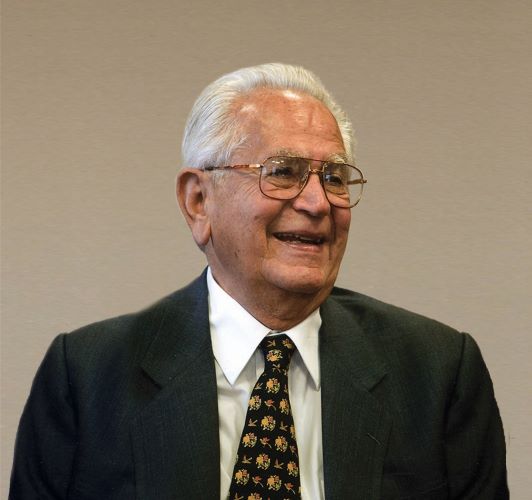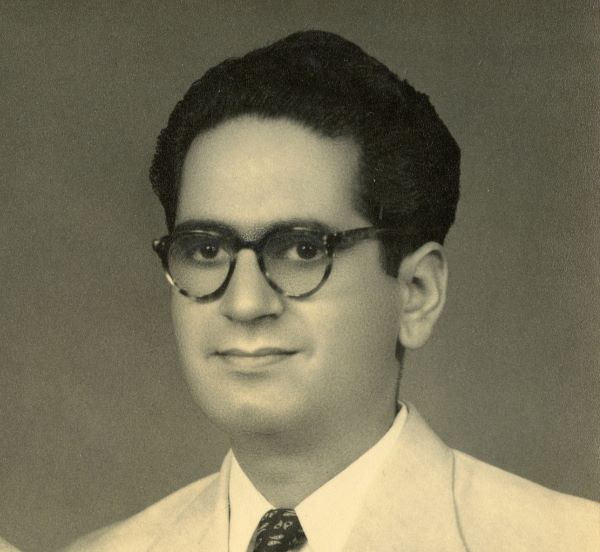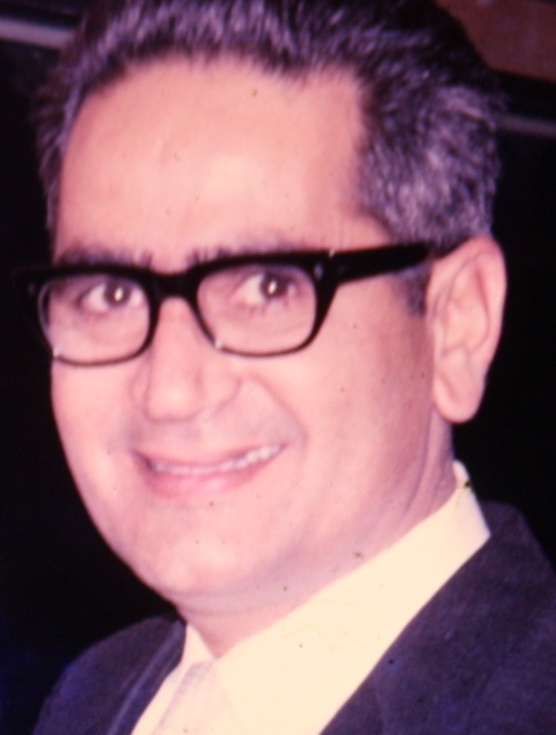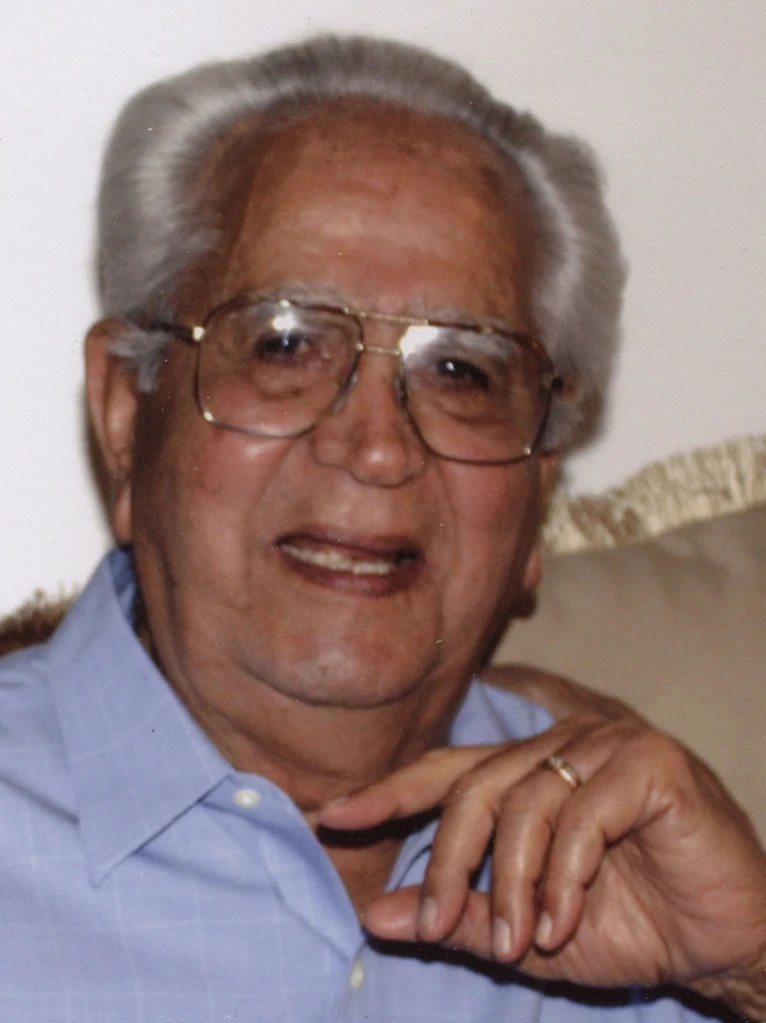
Nandlal Tolani was born on February 15, 1924 – a 100 years ago; Tolani family were zamindars of Sindh, among the largest in the area around Larkana
Saaz Aggarwal
When Nandlal was born on February 15, 1924 – a 100 years ago today – his home was filled with joy and hope. But nobody, even his most doting parents and grandparents, could have imagined the brilliance he would show in years to come and the huge spectrum of achievement that lay in store.
The Tolani family were zamindars of Sindh, among the largest in the area around Larkana. A brilliant student, preparing himself to live on the family lands and cultivate them as best as could be done, he graduated from King George V Institute of Agriculture Sakrand, and then proceeded to study Agricultural Engineering from Cornell University, USA. He returned with a Master’s degree in early 1948, but Partition prevented him from ever living in Sindh again.
 The family wealth and lands were all lost but he still had his education and enterprise and used them to contribute to the building of the new and struggling nation. Starting with small projects, in time he secured a contract to construct an earthen dam. Soon, his organization became the foremost in earth-moving projects in Gujarat and Maharashtra.
The family wealth and lands were all lost but he still had his education and enterprise and used them to contribute to the building of the new and struggling nation. Starting with small projects, in time he secured a contract to construct an earthen dam. Soon, his organization became the foremost in earth-moving projects in Gujarat and Maharashtra.
Finding shortsighted government policies and corruption difficult to tolerate, Nandlal returned to Cornell to work towards a PhD. This time he had his family, his wife Papu, and their young children Rohet and Sujata with him. It was a pleasant interlude, and he earned his PhD in 22 months, a record at Cornell even today. His thesis was on the subject of how to develop an operational model to choose between a fertilizer plant and an irrigation project in underdeveloped countries. There were strong messages in this thesis for the Government of India, but sadly none were heeded.
 A brilliant student, preparing himself to live on the family lands and cultivate them as best as could be done, he graduated from King George V Institute of Agriculture Sakrand, and then proceeded to study Agricultural Engineering from Cornell University, USA. He returned with a Master’s degree in early 1948
A brilliant student, preparing himself to live on the family lands and cultivate them as best as could be done, he graduated from King George V Institute of Agriculture Sakrand, and then proceeded to study Agricultural Engineering from Cornell University, USA. He returned with a Master’s degree in early 1948
Dr. Tolani enjoyed life at Cornell and would in later years say that he considered himself more fit for a life in academia than one in business. He would have stayed on to study and teach at Cornell but his father, Pribhdas Tolani, wanted him back at home. Ever the loving and dutiful son, he returned to Bombay.
Back in Bombay, however, Dr. Tolani was determined to move away from construction. Conducting feasibility studies for an alternative with less bureaucracy and corruption, he soon started a ship-owning and ship-managing business.
Starting with two ships – bought with savings rather than loans – Tolani Shipping grew gradually and systematically. Dr. Tolani had no interest in becoming a great shipping tycoon and competing with other companies for the maximum number of ships. His aim was to create wealth and a comfortable life for himself, his family, and his employees. While he achieved this, his company also grew to be highly regarded across the shipping world.
Also read: Of Sindhis and the Prejudices
During this time, Dr. Tolani systematically divided his time and energy between his work, his philanthropic activities, his leisure pursuits, and his family. He started a college of commerce in Andheri East, and developed it into a center where neighborhood children, at an impressionable age, would receive a high-quality well-rounded education with a strong academic component, the best extra-curricular opportunities, and a wholesome moral base. He endowed a chair at his alma mater Cornell University – the Nandlal P Tolani Senior Professorship in International Trade Policy.
His lifetime dream was to found an institute in India which provided a quality of education comparable to the education he had received at Cornell, and to do this he developed the Tolani Maritime Institute, a college of maritime education set in a large and beautiful campus with extensive workshops, library and a campus ship for practical lessons.
 As he said:
As he said:
I never wanted to profit from my educational institutes. What I did want was to run professionally-managed organizations. I wanted to do good business and have a healthy bottom line, but always within the ambit of the law. While doing so, I wanted others around me to benefit too. Working with my team, we built a reputation for being decent, principled, and reliable. Today my biggest satisfaction comes from the respect that every member of Tolani Shipping, of Tolani College of Commerce and of Tolani Maritime Institute command, on the basis of this reputation.
Dr. Tolani was never interested in wealth and power for the sake of wealth and power. The young Nandlal, a child who loved his grandmother dearly, had promised her that one day he would earn so much that she would have enough money to even fill up the toilet. When the time came that Dr. Tolani could have fitted gold taps in his bathrooms, he chose instead the vision and the discipline to use his wealth to truly live life to the fullest. He built a beautiful home, indulged his passion for luxury cars – not with a fleet, but one which he would drive himself and another for his family – and surrounded himself with good friends. In his words:
To me, wealth has given security and some freedom of choice. I have been careful with my spending, and almost always chosen comfort over luxury.
I did use my wealth to indulge my love for bridge and sailing, and to try and attract others to these sports. These are sports that test our mettle, one mentally and the other physically. As such, they help us to engage and develop the faculties we are blessed with as human beings, and thus live life to the fullest.
If there is one lesson of life that I would like to leave my grandchildren, it is the fact that money has little value. Personal satisfaction is far more important than money. For my grandchildren, and for those who come after them, I leave a wish that they may always understand the true priorities of their own lives, and that they may always have the discernment to judge right from wrong. I believe these are the things, rather than money, by which a life may be deemed successful.
Also read: Haridwar – Records of Sindhi Pilgrims’ Travel and Worship
_________________________
Courtesy: Saaz Aggarwal | Sindh: Stories from a Vanished Homeland
 Saaz Aggarwal is an independent researcher, writer and artist based in Pune, India. Her body of writing includes biographies, translations, critical reviews and humour columns. Her 2012 Sindh: Stories from a Vanished Homeland is an acknowledged classic. With an MSc from Mumbai University in 1982, Saaz taught undergraduate Mathematics at Ruparel College, Mumbai, for three years. She was appointed features editor at Times of India, Mumbai, in 1989, where she launched Ascent, the highly successful HR pullout of the Times of India Group. From 1998 to 2006, she was HR and Quality Head of Seacom, an Information Technology company based in Pune. As an artist, she is recognized for her Bombay Clichés, quirky depictions of urban India in a traditional Indian folk style as well as a unique range of offerings at the annual Art Mandai event in Pune. Her art incorporates a range of media and, like her columns, showcases the incongruities of daily life in India.
Saaz Aggarwal is an independent researcher, writer and artist based in Pune, India. Her body of writing includes biographies, translations, critical reviews and humour columns. Her 2012 Sindh: Stories from a Vanished Homeland is an acknowledged classic. With an MSc from Mumbai University in 1982, Saaz taught undergraduate Mathematics at Ruparel College, Mumbai, for three years. She was appointed features editor at Times of India, Mumbai, in 1989, where she launched Ascent, the highly successful HR pullout of the Times of India Group. From 1998 to 2006, she was HR and Quality Head of Seacom, an Information Technology company based in Pune. As an artist, she is recognized for her Bombay Clichés, quirky depictions of urban India in a traditional Indian folk style as well as a unique range of offerings at the annual Art Mandai event in Pune. Her art incorporates a range of media and, like her columns, showcases the incongruities of daily life in India.
Her books are in university libraries around the world, and much of her research contribution in the field of Sindh studies is easily accessible online on:
https://www.sahapedia.org/sindhworkis-unique-global-diaspora
https://www.youtube.com/channel/UCZVBQWpTX4Uww1e-ZP_kT8A
http://blackandwhitefountain.com/.
[…] Also read: Dr. NP Tolani: birth centenary of a titan […]
In larkana still known as Tolani Banglow near Mugal school by this article I saw the good person’ photo. Thanks for that information & larkanain history